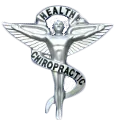The Federal Motor Carrier Safety Administration (FMCSA) promotes safety by medical regulation and guidelines to make sure commercial drivers, driving in interstate commerce, are physically qualified to do so. If you’re in need of a D.O.T. physical, Dr. Donovan Hutchings, D.C. is a certified medical examiner with more than 20 years of experience and is recognized by OOIDA for Driver Helpful DOT Physical Exams. He uses his medical knowledge and current best practices to determine whether a CDL driver is physically qualified to drive a commercial vehicle. Fast and efficient Department of Transportation Exam to get you back on the road.
What to Expect at Your D.O.T. Physical
We do our best to get you an appointment that works with your schedule. You should expect to be in our office for at least an hour. Our efficient staff will process all your paperwork for you, and give you a copy to bring to the DMV and/or your employer. We can also evaluate the condition of your spine and offer adjustments to reduce the strain of prolonged sitting while driving.
When you arrive at your appointment, all drivers need to bring a complete list of your medications, including the strength and dosage.
- Drivers who require eyeglasses, contact lenses, or hearing aids: you need to bring your glasses, contacts, or hearing aids. You will need to take an eye exam with and without your glasses and contacts.
- Drivers with high blood pressure: your blood pressure must be below 140/90 on the day of your exam.
- Drivers with diabetes: your blood sugar should be controlled. Bring the most recent results of a lab test called A1C, and other records related to diabetes. If you are a type 1 diabetic, please call the office for instructions.
- Drivers with sleep apnea and who use a CPAP or Bi-PAP: if you have had a sleep study done at any time, you need to have either a copy of the study showing you do NOT have sleep apnea, or a copy of your sleep compliance report for at least 90 days.
- Drivers who have heart related issues (including stent, valve replacement, pacemaker, open heart surgery, bypass surgery, arrhythmia, heart attack, tachycardia): at minimum, bring a letter from your cardiologist stating you are safe to drive a commercial vehicle with a copy of your latest chart note. You must also bring your results of a recent stress test, echocardiogram or any other testing in the last year.
